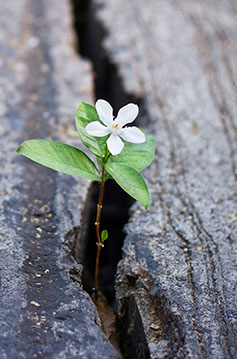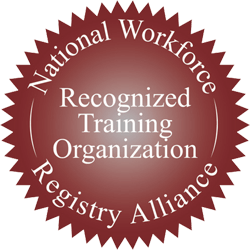Victory and Peace
The four-year old girls were good friends, but now they’re angry. One said something to the other, tempers flared, and a friendship is in jeopardy. Fortunately, the children are in a Montessori classroom. Montessori schools use many techniques for harmony, but in this classroom they have a peace rose. One little girl retrieves the flower from its shelf, expresses her hurt, and passes the rose to her friend. Together they explore their feelings, and conflict is transmuted into understanding. The children have learned a process to maintain harmony. In a time of resurging intolerance, we may turn to our classrooms for reassurance. They are gardens of peace, the fields where we sow the seeds of a better world. We may seek solace in the work we do, knowing that the beauty we nurture will in time blossom into magnificent petals of justice, kindness and equality. Recently I have found myself thinking again and again about victory. We know that peace is more than just an absence of war. But what is a Montessori victory? Do we conquer our enemies? No. We will not repair this world by subduing those who disagree with us. Do we shout down the bigot? How much better for the world if the bigot abandons their bigotry? How much better if the criminal no longer commits crimes, if the sinner no longer sins? The second World War was conceived when the victors of the first war mistreated the vanquished; a third world war was averted when the conquered became allies. Force without justice is domination, not victory. A Montessori call to arms is a call to the classroom. This is where we cultivate real victory. True and lasting peace will arise from our schools, where we prepare the next generation of peaceful leaders. The work we do is ever more vital, and I urge you not to despair at the territory we still have to cover. Let’s recall how far we have traveled from 1907, when Dr. Montessori opened the Casa dei Bambini in Rome. Nominated three times during her life for the Nobel Peace Prize, Dr. Montessori worked tirelessly to improve the rights and conditions of women and children. Justice informed her methodology, and peace infuses the very DNA of our classrooms. The strides made for liberty in the past century – the advances made for children, for women, for minorities, for gays and lesbians – do not doubt that even today we see the ripples of her work throughout all the social progress we’ve made. That the task is not yet complete should not surprise us. Wherever we look globally, we see the anger and the outrage of those who have felt excluded from the political process. Income inequality is at an all-time high. Far-right parties are rising across the world, fueled by bigotry, economic uncertainty and a populism born of the sense of neglect by elite powers. The political turmoil is only one of the symptoms of our broken world. We do not forget the millions of refugees fleeing war, and the victims of the terrible wars themselves. Do not be disheartened, for as long as we teach peace there will be a light in this world. Yes, our work begins in the classroom, but shall we stop there? What else can our school communities do? It will not be enough for us just to stall some current agenda. When we work to defeat ISIS in the Middle East, Boko Haram in Africa, or unseat some political adversary at home, we earn but a moment’s respite. Unaddressed, hatred and violence will always return in a new form. A lasting peace requires us to heal the deeper wounds of this earth. Dr. Montessori taught us that when children act out, it is because they have unmet needs. Is this not true of adults as well? Perhaps at no time since the second World War has the planet been so united in angst about the future. Montessori has a healing message for a broken world, and this is the time for us to recommit to telling the story, both inside and outside of our classrooms. We can begin by speaking our healing message. Shout it from the mountaintop, whisper it in the halls of your school. Organize, promote justice, discuss difficult topics. Model peace in and out of your classrooms. Educate the children and adults in your community. Participate. Engage. It begins and ends with our conviction that Montessori has a message of peace which will mend this world’s wounds. Here is my attempt to formulate a Montessori statement on peace. We urge every school to create such a statement and share it. Feel free to use or modify mine as you see fit. A Montessori Statement on PeaceWe believe that we can change the world. We believe that when you work with children, you touch the future. We believe that peace is more than the absence of war. We will repair this planet by building a lasting peace. We believe that anger comes from hurt and that hatred comes from fear. We believe that a lasting peace comes from understanding, respect and love for all life. We believe that Montessori is education for the 21st century, and the 22nd, and the 23rd – that this is the best and truest method for preparing children to become the next generation of leaders. We will prepare the peace by addressing the causes of suffering, and prepare the children in our classrooms to look suffering in the eye and say “no more.” We believe in the dignity of the child and of the adult. We believe that it is possible for mankind to live in peace and harmony. Moreover, we are going to make that happen. We believe that all people have a place at our circles. We commit to bringing into our circles those who have been most excluded. We believe that all voices should be heard. We know that when people shout, it is because they do not feel that we are listening. We will always stand with the oppressed, but never fail to hold a hand out in peace to the oppressor – for we know that someday they will take it. On that day we will all be free. We believe the world may be made forever safe from demagogues and dictators. As Montessorians, we know our students will laugh off the shackles of fear that tyrants use to bind the populace. Furthermore, what tyrant could ever arise from our beautiful, peaceful classrooms? We believe that we may go forward so that we will never go back again. We know that when we march forward from dark spaces, we will bring all of our sisters and brothers with us into the light – and leave none behind. |




